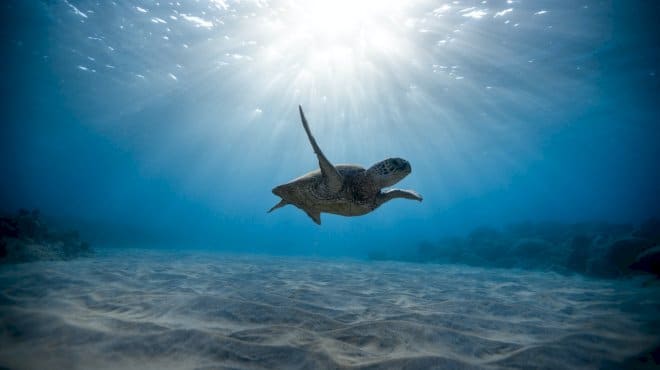
1. Migratory Species in Peril: UN Report Unveils Dramatic Declines, Fish Hardest Hit
Migratory species don’t travel with a passport, but they cross borders all the time. This makes the animals’ conservation a uniquely challenging, international effort. That effort needs a lot of work, researchers argue in the first-ever “State of the World’s Migratory Species” report published February 12 by the United Nations Environment Programme.
It is the most comprehensive tally of the over 1,000 species protected under an international treaty called the Convention on the Conservation of Migratory Species of Wild Animals, or CMS. Nearly half of CMS species are experiencing population declines. Of those, fishes are faring the worst: 97 percent, roughly 56 species, are facing extinction. The goal of the report is to guide priorities for CMS COP14, a meeting of global conservation leaders in February in Samarkand, Uzbekistan, to create new strategies for the protection of migratory species.
Thank you for your generous gift that will help us continue the production of this weekly, free publication
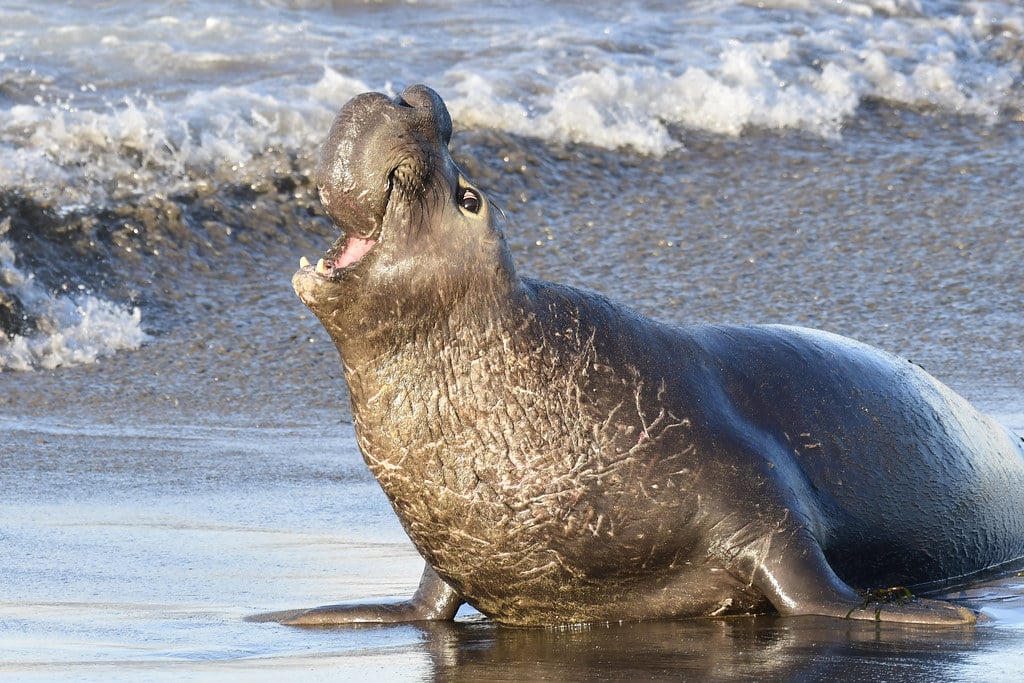
2. Observation of Potential Altruism by Male Northern Elephant Seal
In a surprising twist to what we know about animal behavior, scientists have observed a male northern elephant seal, typically engaged in fierce battles for mates, displaying a rare act of altruism. During the breeding season, this seal went out of its way to save a young pup from being swept out to sea, a behavior quite unexpected for a species known for its aggressive, competitive nature. This act of selflessness, where the seal expended significant energy with no apparent benefit to itself, challenges our understanding of animal behavior, suggesting that even among the most competitive of creatures, there can be instances of genuine care for others. This remarkable observation sheds new light on the complexity of animal societies and the potential for altruism in the wild.
Editorial Comment:
“Upon reviewing the observation paper, I find myself inclined to critically evaluate the study’s interpretation of the alpha male’s actions as altruism. Before fully endorsing this conclusion, further evidence is necessary. It is common for human observers to ascribe human-like qualities to animal behavior, an approach that, while understandable, can lead to inaccuracies in scientific analysis. Specifically, if the pup in question is the offspring of the alpha male, the behavior observed could more accurately be attributed to an instinctual drive rooted in Darwinian principles to ensure the survival and propagation of one’s own genes, rather than a case of altruism. This distinction is crucial for a precise understanding of animal behavior and underscores the importance of avoiding anthropomorphism in scientific research.”
Georgienne Bradley

3. New York Ban on Laundry Detergent Capsules
New York, USA: New York is considering introducing restrictions on the use of laundry pods, by introducing a bill, which would make it illegal to sell and distribute laundry detergent capsules or laundry wipes containing polyvinyl alcohol, known as PVA or PVOH. Although laundry pods and wipes “dissolve” when washed, PVA is ultimately a type of plastic. Products made with PVA are touted to consumers as being more comfortable and more environmentally friendly.
PVA, which like regular plastic is derived from fossil fuels, and for effective decomposition it requires special conditions in treatment facilities. Such conditions do not currently exist. The study found that approximately 19 tons of PVA are used annually in the United States. About 11% of the water is not treated, passes through conventional treatment plants immediately ends up in the ocean through normal wastewater treatment.
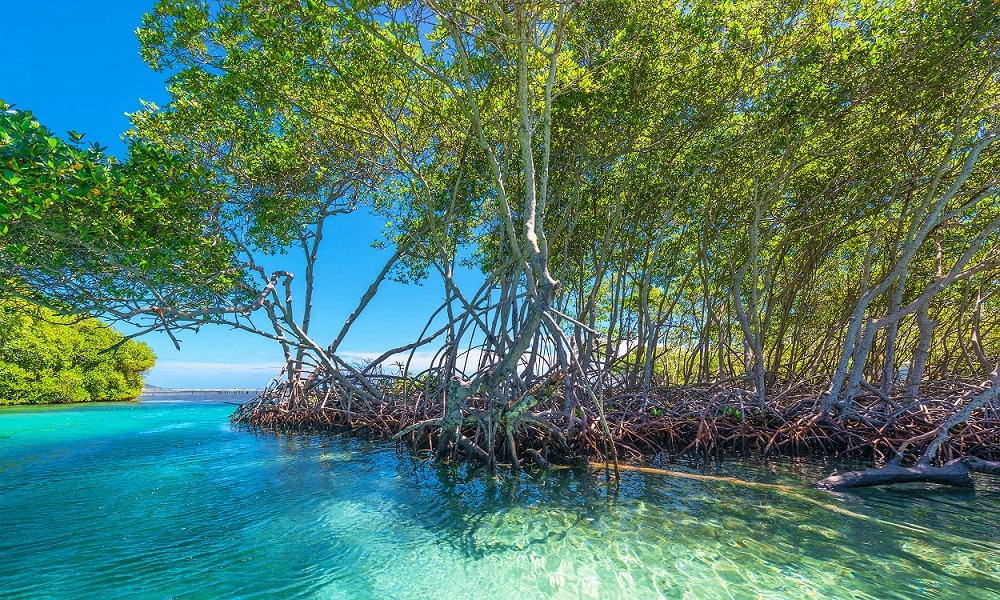
4. Mangroves: a Greater Carbon Sink Than Previously Thought
Sweden: Research from the University of Gothenburg shows that mangroves and saltmarshes are twice as effective as previously thought at sequestering large amounts of carbon, mitigating the greenhouse effect on our planet. Natural habitats flooded by the tide form ecosystems that capture large amounts of carbon dioxide, which is stored in the biomass and the muddy soils.
“It is now even more important to protect and restore mangrove and salt marsh ecosystems” says Gloria Reithmaier, one of the researchers in marine chemistry who enlisted the help of scientists from 12 different countries to analyse intertidal carbon transport in 45 mangrove swamps and 16 salt marshes around the world. “Our results showed that previous estimates of these blue carbon sources have underestimated the potential of mangroves and saltmarshes to mitigate climate change.” Several governments have launched initiatives to restore and preserve mangrove and salt marsh ecosystems.
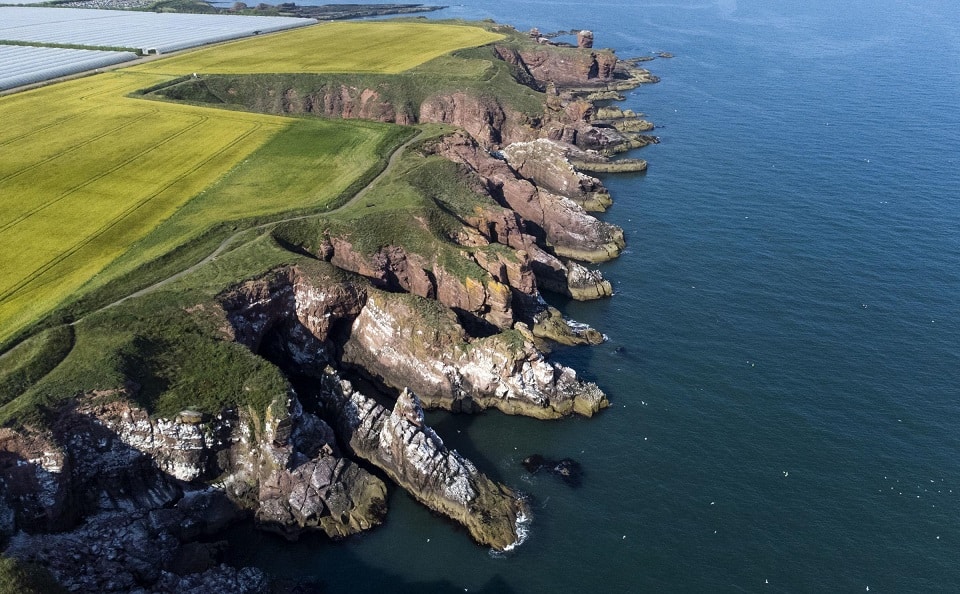
5. Two-Thirds of Scotland Want New Coastal National Park
Scotland: Almost two-thirds of Scots want a new national park with coastal and marine areas in it, polling has revealed. Research by pollsters found that 33% strongly support this, while another 30% somewhat support the idea. Just one in 10 (10%) are opposed to a new national park taking in marine and coastal areas, the survey, carried out in January, found.
Ministers have already pledged to establish at least one new national park in Scotland by the end of this parliamentary term, with the commitment part of the Bute House Agreement between the SNP and Scottish Greens. Scotland currently has just two national parks, in Loch Lomond and the Trossachs and the Cairngorms, and Nikki Sinclair national parks strategy project manager for the Scottish Campaign for National Parks argued that ministers should be creating a whole “suite of national parks during this Parliament and beyond”.
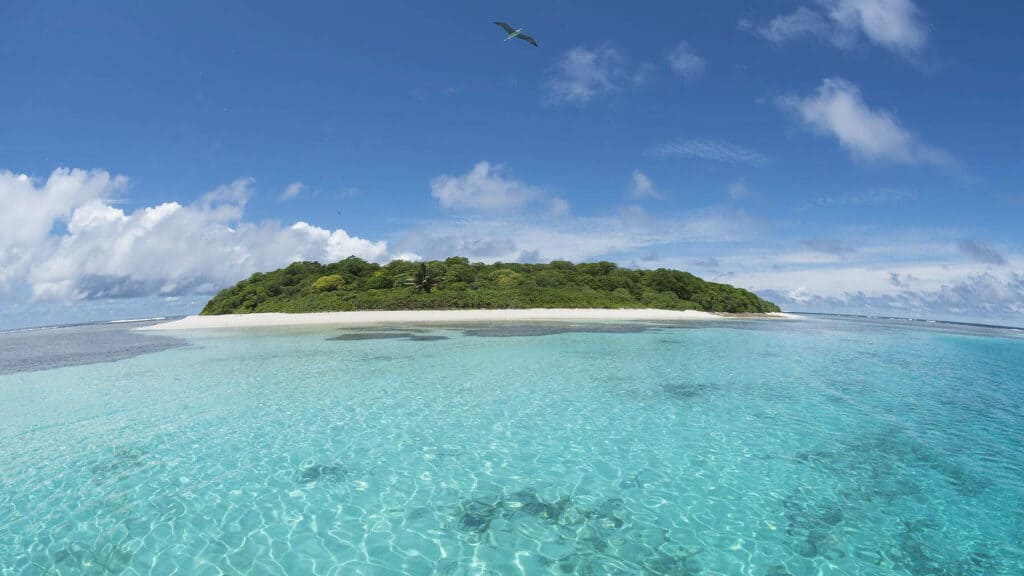
6. Blue Talanoa: Talking About Ocean Issues in Tonga
Kingdom of Tonga: The first “Blue Talanoa” in Tonga, a forum for local activists and government officials to discuss issues facing the ocean, in Tonga and the Pacific region, was hosted by the French Embassy from Fiji. The Embassy stated this session would help to analyse issues linked to the maritime sector, marine, and coastal biodiversity, economic and industrial interests, in preparation for the third UN Ocean Conference (UNOC3) in Nice, France, in June 2025.
The Blue Talanoa roundtable discussion acknowledged the need for coherence between the communities, the Government, and organizations in protecting the ocean and the need to bring policies from the international level to the community level. There needs to be a consideration for communities who are relying on the ocean for food, income, and the government should make approaches to bring an alternative to protect the exploitation of the ocean resources.
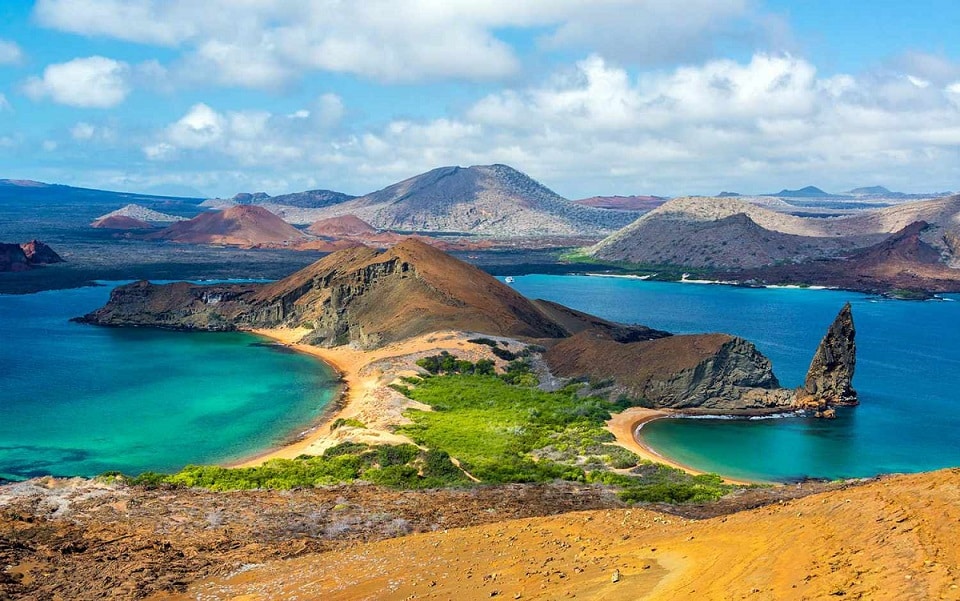
7. Galapagos Islands Needs World Heritage ‘in Danger’ Status
Paris: Conservation groups formally requested today, on Charles Darwin Day and Galapagos Day, that the Galapagos Islands World Heritage site be listed as “in danger” under the World Heritage Convention. The unique archipelago, a province of Ecuador, is facing threats from illegal fishing, irresponsible tourism, pollution, invasive species and poor management. “Ecuador is failing this irreplaceable, biodiversity-rich treasure by not doing enough.” said Alejandro Olivera, a senior scientist at the Center for Biological Diversity.
The Galapagos National Park is home to one of the most productive marine ecosystems in the world. Among the most famous species on the islands are the giant tortoises and the marine iguana. Nearly 20% of marine life in the Galapagos is found nowhere else on Earth. Today’s petition was submitted by the Center for Biological Diversity, Círculo de Políticas Ambientales, SOS Galapagos, Turtle Island Restoration Network and World Heritage Watch.
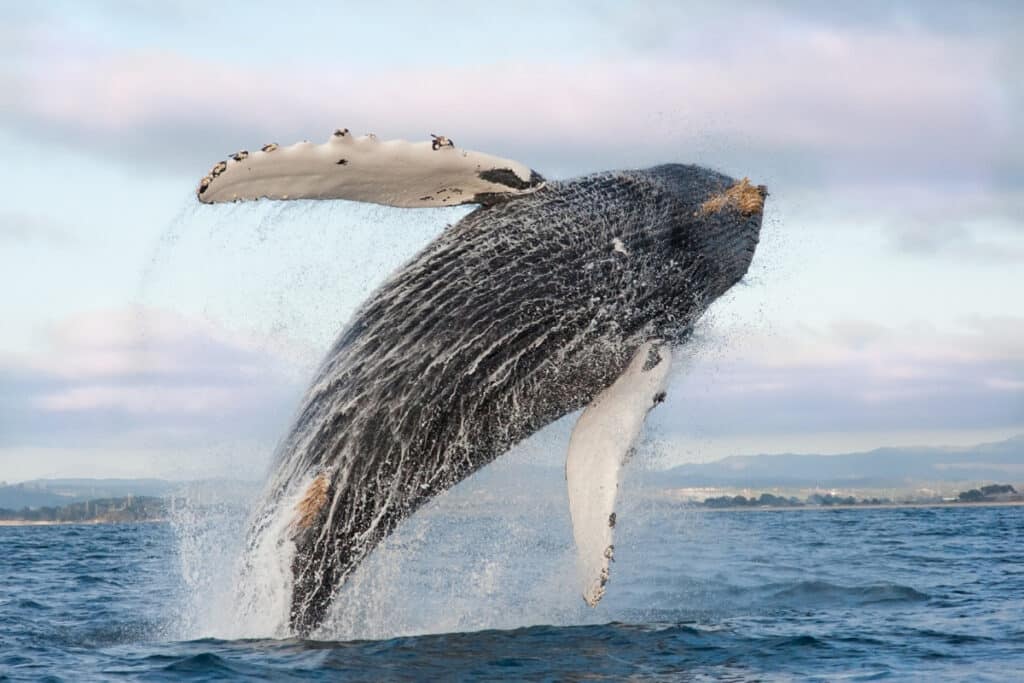
8. AB 2220 from Asm. Bennett Seeks to Protect California’s Ocean Biodiversity
Saramento, California, USA: Assemblymember Steve Bennett (D-Ventura) introduced AB 2220 to reduce injury and death to marine life in California’s gillnet fishery, while removing exemptions that allow nets to catch/keep protected species. Whales, sea lions, sharks, and other fish are entangled in the gillnets meant to catch halibut and white seabass. A recent report documents that more than half of the catch is thrown overboard as waste, among the highest rates of ocean animals discarded in any fishery in the state.
“There are alternative methods of fishing proven to diminish harm to marine life and reduce bycatch while producing higher quality seafood. AB 2220 aligns Southern California waters with Northern California by prohibiting gillnets in all ocean waters of the state, broadening protections for marine life, and encouraging sustainable practices for all who enjoy and make a living from our ocean,” said Assemblymember Bennett.
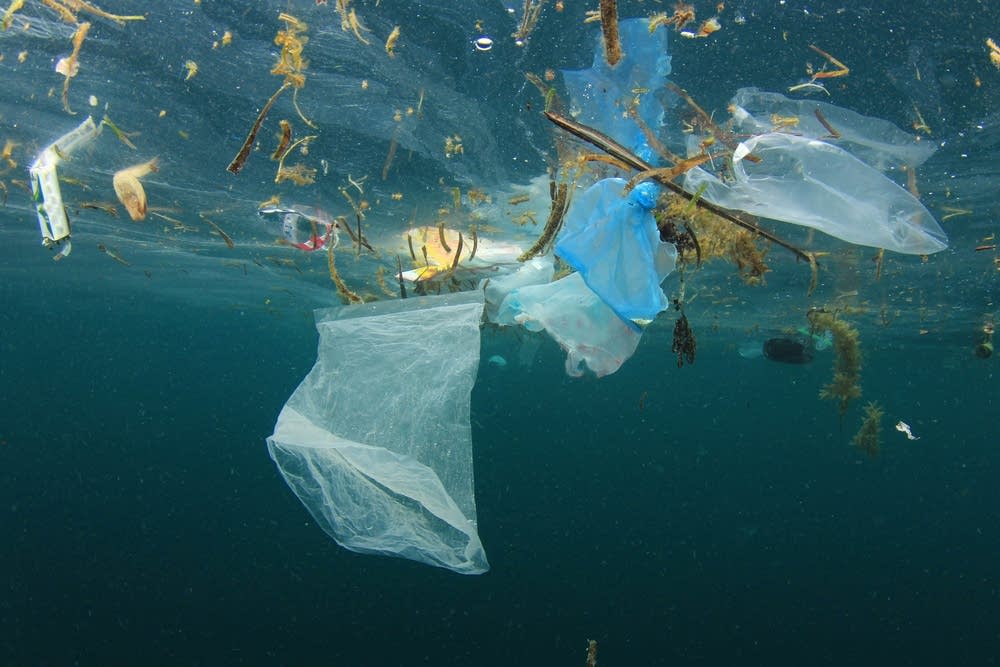
9. New Bill Seeks to Eliminate All Plastic Bags in California
California, USA: A decade ago, California legislators approved the nation’s first ban on flimsy single-use plastic bags then offered at most stores. That law included a carveout that lets stores sell thicker “reusable” plastic bags. Plastic bag companies took advantage of that loophole by producing thicker plastic bags that are sometimes the only option for shoppers who don’t have a reusable tote. Problem is, data shows most people don’t reuse the bags, and they are difficult to recycle.
While Californians are using fewer plastic bags, data shows residents are producing more plastic bag waste by weight per person now than they did before the law took effect. Two bills, both backed by the CA Grocers Association, would make it illegal for stores to offer plastic film bags to customers starting in 2026, instead providing 100% recycled paper bags or let consumers use their reusable bags.
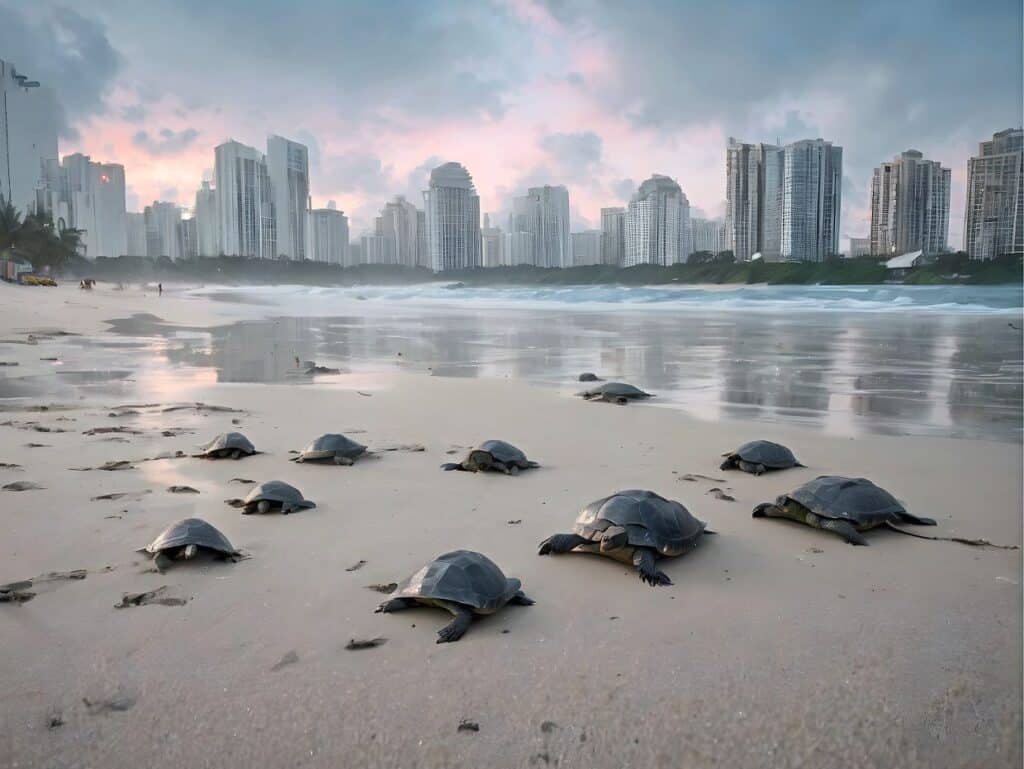
10. AI Artistry Makes Waves to Save the Turtles
Malaysia: A futuristic voyage into the world of AI creativity is shining a spotlight on turtle and marine conservation. Art depicts a turtle nesting haven shattered by the growing impact of human activity. Tall buildings along the coast emit bright lights which confuse the turtles, luring hatchlings away from the safety of the ocean and towards perilous roads. The idea to blend AI technology with art stemmed from a desire to engage young minds in marine conservation and think outside the box to create something truly innovative to raise awareness.
“In the exhibition, you will join a fictional group of sea turtle superheroes, called the Guardians of the Tides, on a visually stunning journey that transcends traditional art boundaries, inspiring action for sea turtle conservation,” explained Alexander Yee, the mastermind behind the event space hosting the unique exhibition.
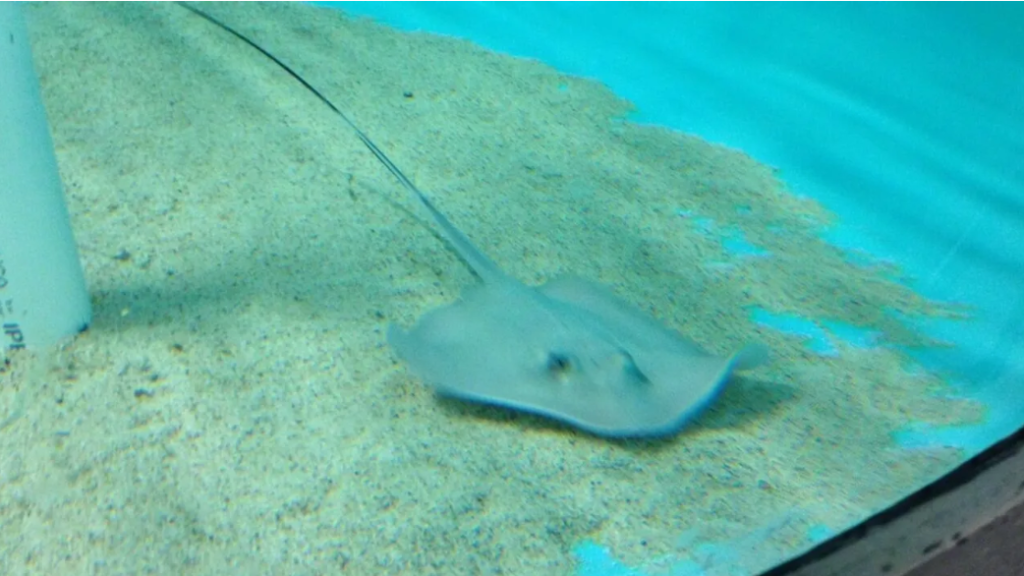
11. A Miraculous Pregnancy at Henderson Aquarium: Stingray’s Mysterious Pups – The Immaculate Conception or ???
Hendersonville, North Carolina, USA: Charlotte, a stingray who has captivated visitors with her grace and charm, is expecting pups. Yet, this pregnancy is unlike any other – Charlotte’s tank houses no male rays. Concerns arose when the aquarium staff noticed Charlotte’s abdomen swelling. Fearing the worst, they sought the expertise of veterinarians who conducted an ultrasound. Instead of revealing signs of cancer, the images presented a startling discovery – multiple egg growths.
The aquarium team was left baffled, as Charlotte shared her tank with only female companions. The team eagerly awaits Charlotte’s delivery, estimated to occur around February 9th. Up to four pups are expected, and DNA testing will be conducted post-birth to determine if they are mixed breeds or clones of their mother. Their birth will undoubtedly be a miraculous event, a beacon of hope amidst the complex dance of life.
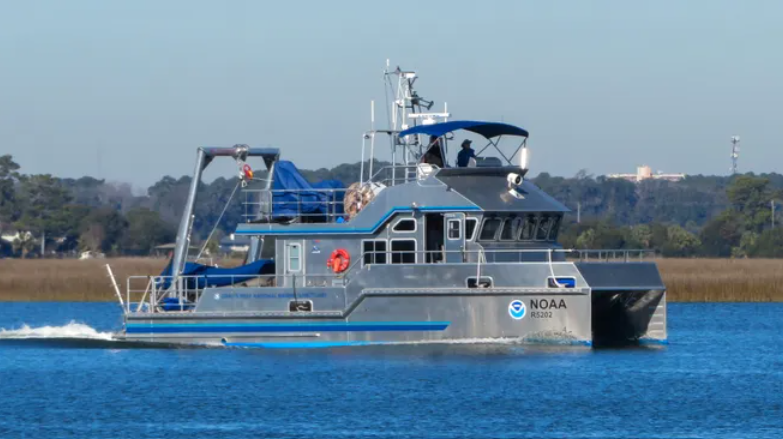
12. New Gray’s Reef Research Vessel Aims to Capture Climate Impacts off Georgia Coast
Georgia, USA: Gray’s Reef National Marine Sanctuary, the 11,000-acre preserve 19 miles off the Georgia coast, has just christened its newest and largest tool in exploring what is one of the largest near-shore, “live-bottom” reefs off the Southeastern U.S. coast: the 52-foot research vessel Gannet. The new vessel will allow for enhanced exploration of what remains a largely “unexplored and undiscovered” portion of the Atlantic continental shelf that stretches from North Carolina to central Florida.
Researchers can better gauge the growing underwater impact of climate change, and develop sound adaptation strategies. The effects of a warming atmosphere already are evident. Salinity and acidity levels have shifted and new species of fish and algae are showing up off the coast of Georgia for the first time. Gray’s Reef Sanctuary also plans to frequently host educators and students for information-rich voyages aboard the Gannet.
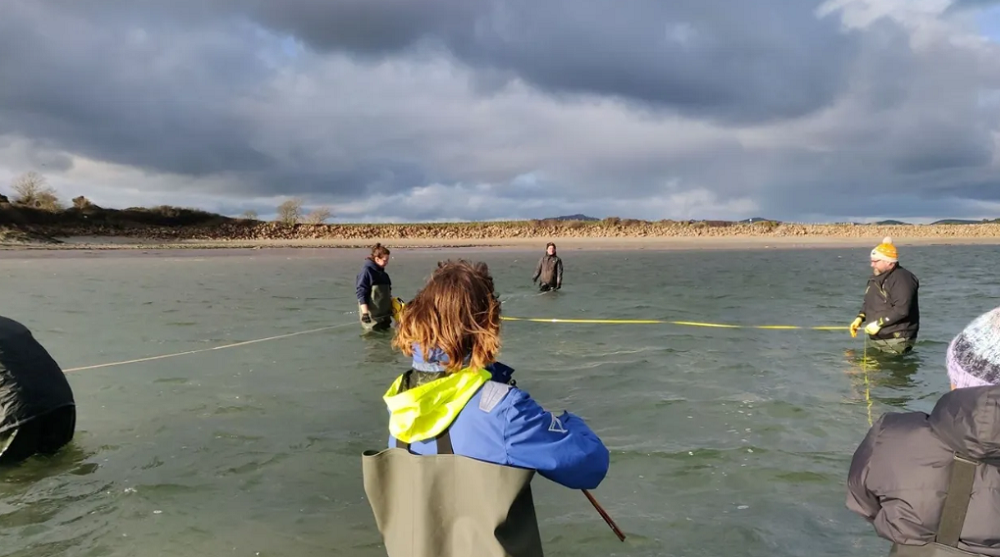
13. Seagrass Ocean Rescue: Restoring Vital Marine Habitats in North Wales
Wales: Seagrass Ocean Rescue, a collaborative project by WWF Cymru and Swansea University’s Project Seagrass, is working to restore seagrass meadows off the coasts of Anglesey and the Llŷn Peninsula in North Wales. These underwater gardens are vital for marine life, water quality, and climate change mitigation. They provide food, shelter, and breeding grounds for a diverse array of marine life, from tiny invertebrates to species like seahorses and green turtles.
Moreover, they play a crucial role in improving water quality and combating climate change by storing carbon. With an impressive collection of 1.2 million seagrass seeds, the initiative aims to breathe new life into the dwindling marine habitats this spring and, by engaging local communities, it seeks to create a lasting impact beyond the restoration efforts. Young people are actively involved in seed planting, nurturing a sense of responsibility and stewardship for the environment.
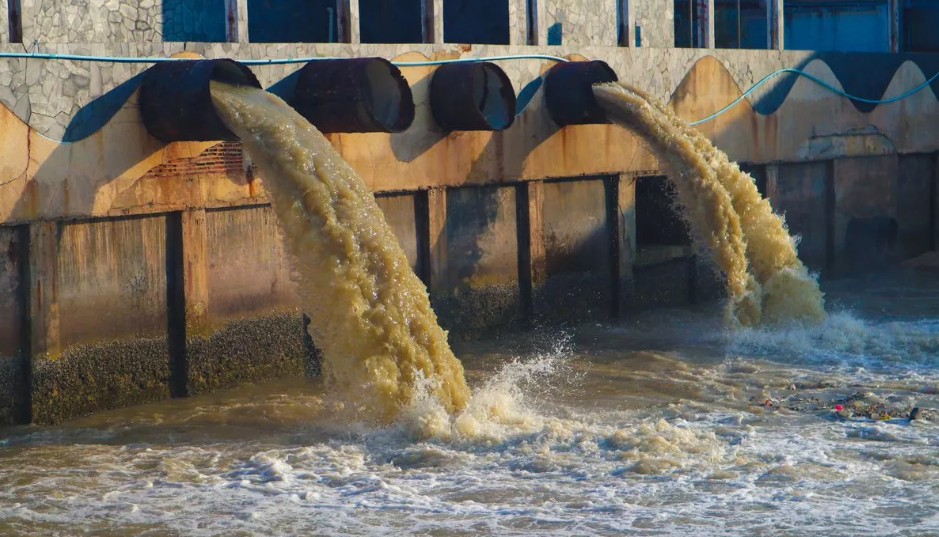
14. CEOs to Lose Bonuses if They Dump Sewage in Sea
England: The bosses of water firms will be banned from taking bonuses if they are found to be criminally negligent for pollution in rivers and the sea. Ministers were accused of being “shamed” into adopting Labour’s plans to get tough on the companies blamed for spillages, the executives of which have received £26million in bonuses since 2019. Labour’s Shadow Environment Secretary Steve Reed said: “Once again Labour leads, the Conservatives follow.
Labour called for the water regulator to be given new powers to block bonuses for polluting water bosses last year.” The bonus ban could include firms that have been successfully prosecuted for the most serious categories of pollution and will apply to chief executives and all board members. Environment Secretary Steve Barclay told The Times: “No one should profit from illegal behaviour and it’s time that water company bosses took responsibility for that.”
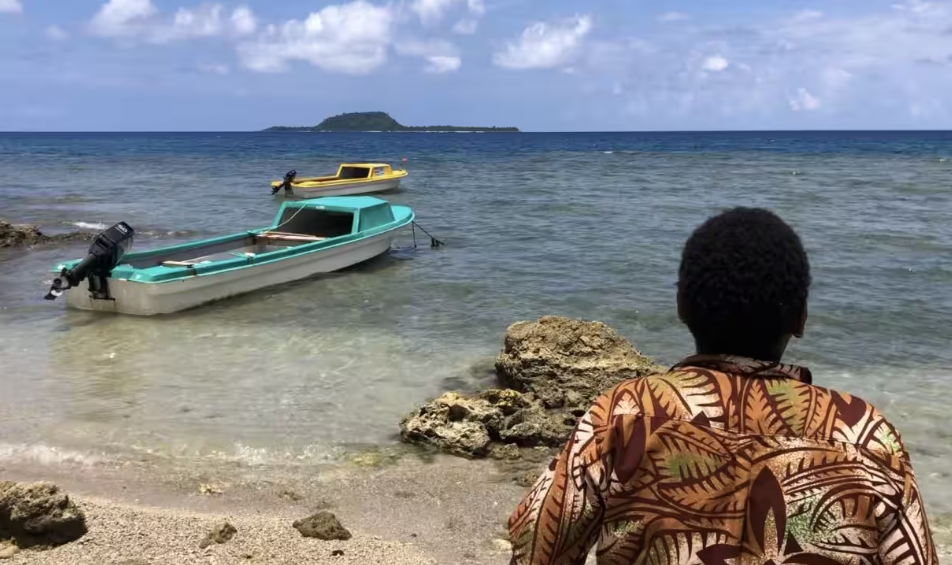
15. More Than Half of Vanuatu’s Visitors Are Australian. Could Climate Change Hurt Tourism?
Republic of Vanuatu: At first glance Mangaliliu, which locals say means “you get a surprise when you come back” is, to borrow a cliché, an untouched paradise. This paradise is being touched by pollution emitted from nations around the world.
Australian tourist numbers peaked in 2019, with 63,000 people holidaying there pre-COVID. Australians are leading the tourism industry recovery with October 2023 figures indicating 60 percent of visitors were from Australia.
Vanuatu is pushing for the International Court of Justice to hand down an advisory opinion on what responsibility countries have for not reducing fossil fuels, and compensating other countries that are being harmed by climate change. ”We know we’re not meeting financial commitment targets we all agreed to and if we are signing up to agreements and not doing what we said we’d do, are there any consequences under international law?”
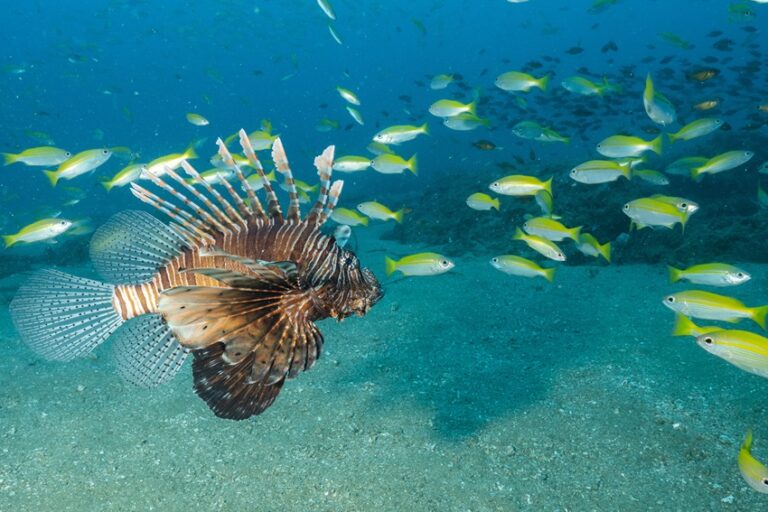
16. Traditional Raft Fishing Threatened as Reefs Choke on Plastic
India: Off the shores of Thiruvananthapuram in Kerala, biodiversity-rich reefs support traditional raft fishing, a fading profession that competes with rising operational costs and risks associated with offshore fishing. Researchers documenting these reefs as part of a study, found evidence of plastic waste and ghost nets, entangling marine life. “The underwater sites were littered with various forms of plastic waste, including bottles, bags, fishing nets, and fragments of single-use plastics.
This alarming find highlights the urgent need for increased efforts in waste management, recycling, and the adoption of sustainable practices to prevent further degradation of our oceans.” “Many deep-water reefs are covered with plastic nets, which may be either discards from the ocean or the ones deserted by fishers due to entanglement. These ‘ghost nets’ trap many creatures every day, and remain a permanent threat to underwater life unless removed.”
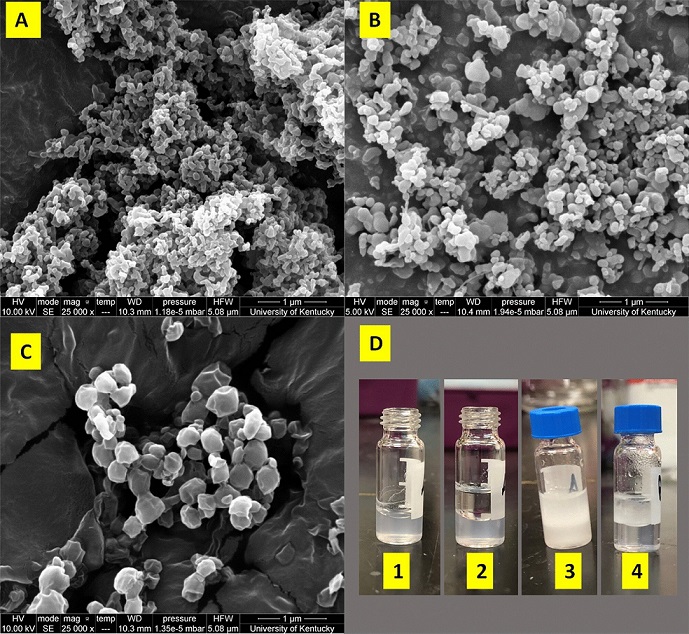
17. Eco-Friendly ‘Magnet’ to Battle Microplastics
Plastic pollution is a pressing environmental issue. Plastics don’t break down easily, leading to massive piles of waste. Over time, plastics break into tiny fragments that can’t be seen without a microscope and makes them a significant hazard, as they can be ingested by marine life and enter the human food chain. University of Kentucky Martin-Gatton College of Agriculture, Food and Environment researchers are leading the charge with an innovative solution: using natural deep eutectic solvents (NADES) to capture and remove miniature particles from water.
“Think of NADES as a kind of ‘magnet’ that specifically attracts and holds onto small plastic pieces,” said Czarena Crofcheck, BAE professor and study co-author. “Basically, the NADES mix with the water and ‘stick’ to the plastics, pulling them out of the water.” While the research is still in its developmental stages, the team is optimistic about its potential applications.
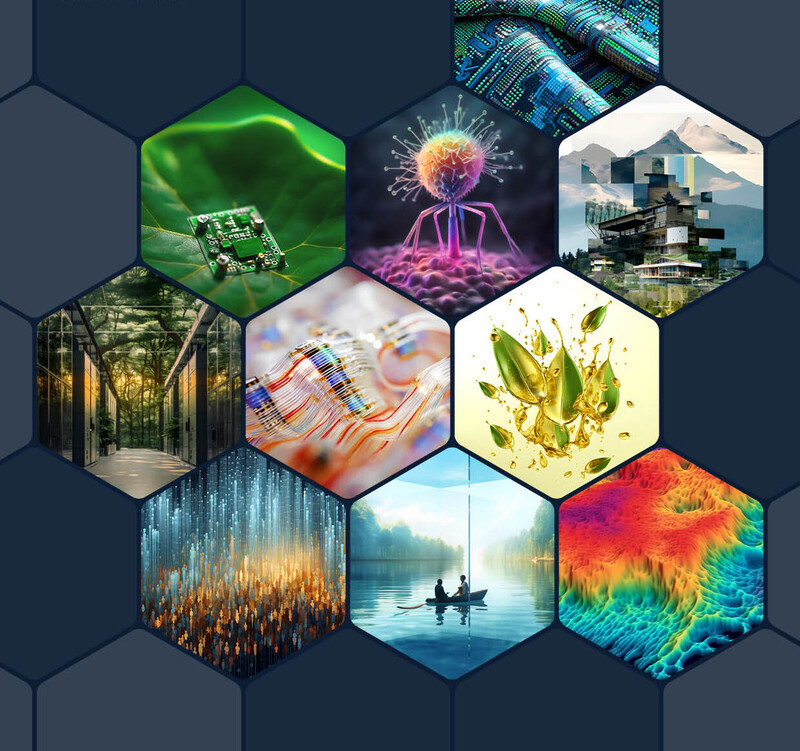
18. 9 Ways Artificial Intelligence (AI Is Helping Tackle Climate Change – Or Is This AI Promoting Itself?
This article was published in The World Economic Forum an International Organization for Public-Private Cooperation which engages the foremost political, business, cultural, and other leaders of society to shape global, regional, and industry agendas. What are the nine (9) ways AI is helping tackle climate change? 1) Icebergs are melting – AI knows where and how fast. 2) Mapping deforestation, 3) Helping communities facing climate risks in Africa, 4) Using AI to recycle more waste, 5) AI is cleaning up the ocean, 6) AI helps predict climate disasters, 7) A wish list of AI climate tools, 8) How AI can help industry decarbonize, and last, but not least 9) Reforesting hills in Brazil using drones. Inquiring minds want to know how AI does this…Click the link below to read the details!
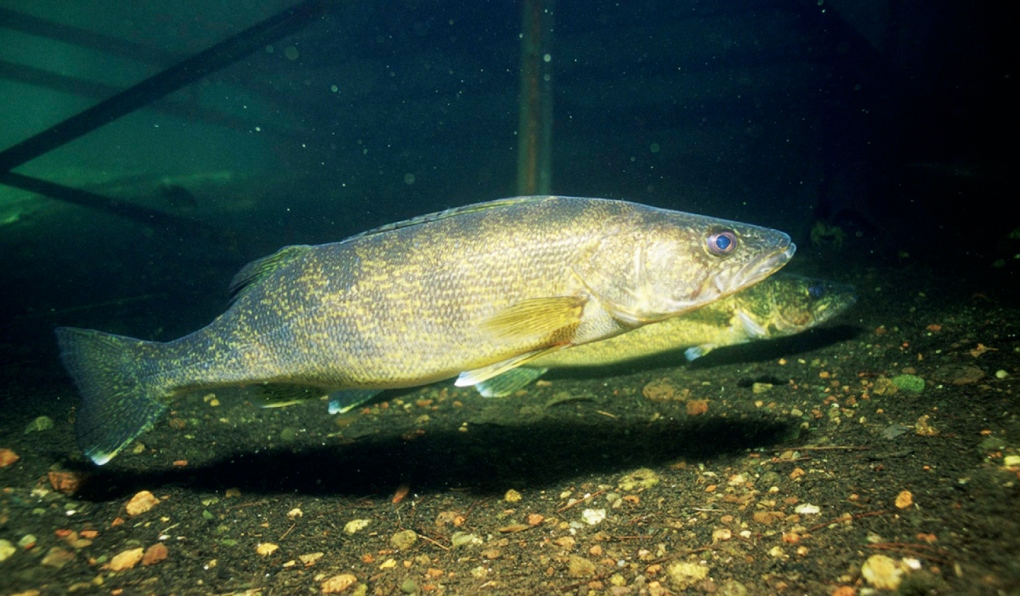
19. Windsor-Essex Man Fined for Over-Catching Walleye
Windsor, Ontario, Canada: A Windsor-Essex man has been fined $1,700 for catching over the limit of walleye this past summer. On July 16, conservation officers from the Ontario Ministry of Natural Resources and Forestry (MNRF) were conducting a marine patrol on Lake Erie off Leamington and stopped a South Woodslee man in his boat, fishing for walleye with four fishing lines.
“The limit for fishing lines allowed when fishing from a boat on Lake Erie is two per person,” read the decision from the MNRF. “The officers inspected the boat and located 14 walleye in the boat’s live well, eight walleye over his sport fishing licence quota of six fish.” Following a November hearing in a Windsor court, the man was found guilty, fined, and had 14 walleye forfeited to the Crown.
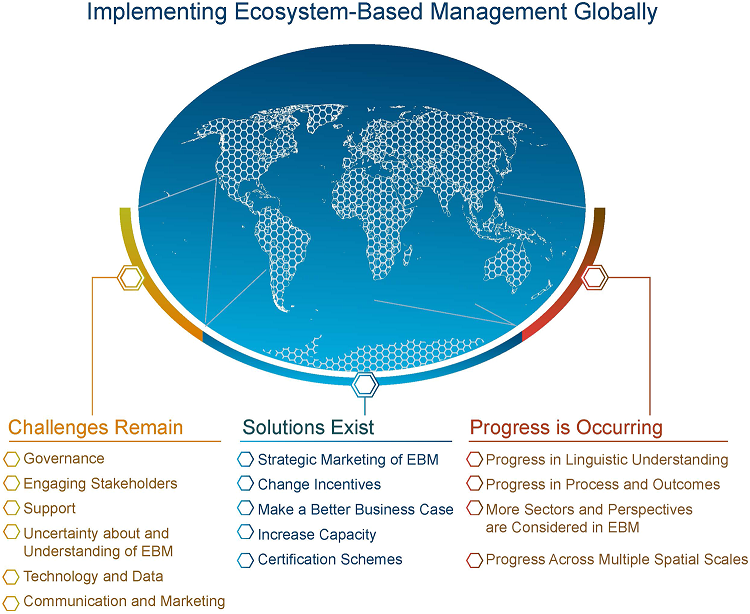
20. Marine Ecosystem-Based Management: Challenges Remain, yet Solutions Exist and Progress Is Occurring
Marine ecosystem-based management (EBM) is recognized as the best practice for managing multiple ocean-use sectors. A poll of over 150 international EBM experts revealed progress, challenges, and solutions in EBM implementation worldwide. Follow-up discussions with over 40 of these experts identified remaining impediments to further implementation of EBM: governance; stakeholder engagement; support; uncertainty about and understanding of EBM; technology and data; communication and marketing.
EBM is portrayed as too complex or challenging to be fully implemented, but it was noted that identifiable and achievable solutions exist (e.g., political will, persistence, capacity building, changing incentives, and strategic marketing of EBM), for most of these challenges and some solutions can solve many impediments simultaneously. We are advancing in key components of EBM by practitioners who may not necessarily realize they are doing so under different paradigms. These findings indicate substantial progress on EBM.
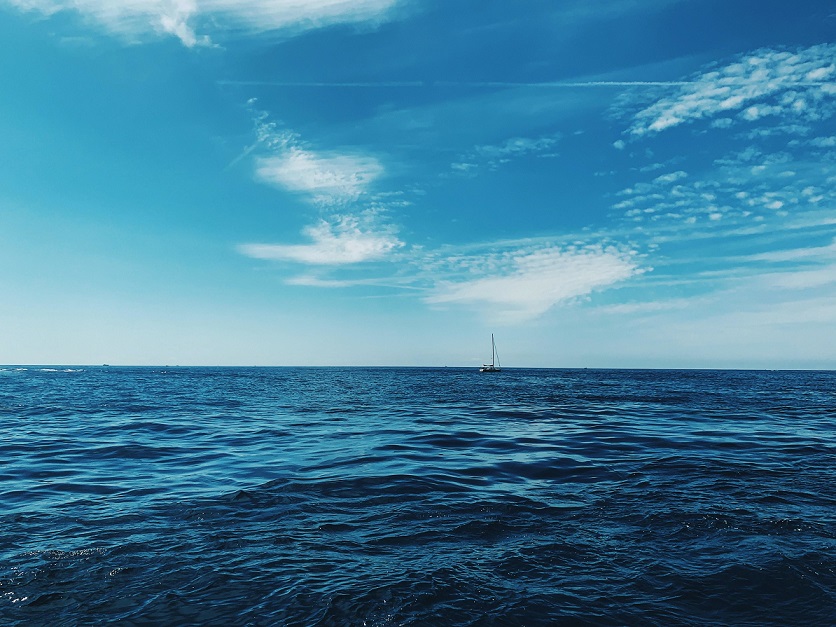
21. Maldive Government to Seek Majlis Approval to Sign BBNJ Treaty
Maldives: The government of the Maldives will seek approval from the People’s Majlis (a unicameral legislative body), to sign the ‘Agreement under the United Nations Convention on the Law of the Sea on the Conservation and Sustainable Use of Marine Biological Diversity of Areas beyond National Jurisdiction’ (BBNJ Treaty).
The decision came from President Dr. Mohamed Muizzu after a meeting with his Cabinet of Ministers on Sunday and was based on deliberations of a paper submitted by the Ministry of Climate Change, Environment and Energy. The BBNJ Treaty is the most productive global initiative initiated to protect the biological diversity of marine ecosystems in open seas beyond the national jurisdiction, to date. To date, the treaty has 83 signatory nations.
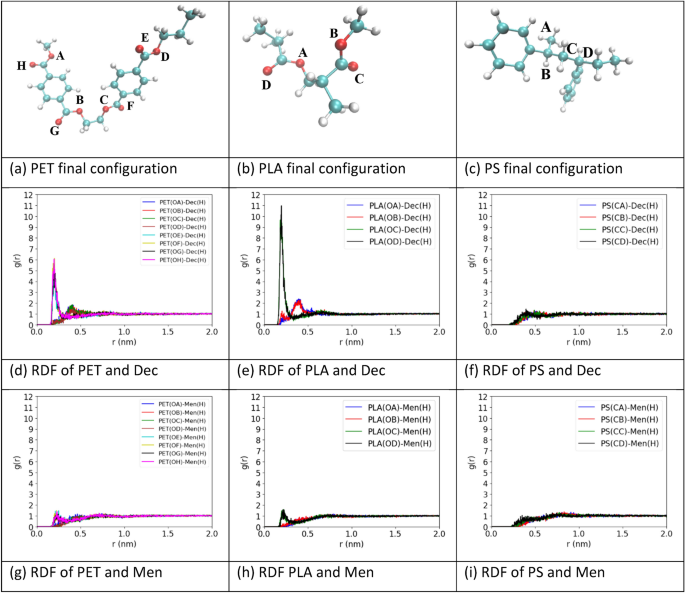
22. Organic Solvent Could Mediate Extraction of Ocean MicroPlastic Particles
The production of plastic and the amount of waste plastic that enters the ecosystem increases every year. Synthetic plastics gradually break down into particles on the micro- and nano-scale in the environment. The micro- and nano-plastics pose a significant ecological threat by transporting toxic chemicals and causing inflammation and cellular damage when ingested; however, removal of those particles from water is challenging using conventional separation methods.
Deep eutectic solvents (DES), a new class of solvents composed of hydrogen bond donors and acceptors, have been proposed as a cheaper alternative to ionic liquids. Hydrophobic DES derived from natural compounds (NADES) show promise as extractants in liquid–liquid extractions. This study investigated the extraction efficiency of micro- and nano-plastics including polyethylene terephthalate, polystyrene, and a bioplastic polylactic acid from fresh water and saltwater using three hydrophobic NADES.




